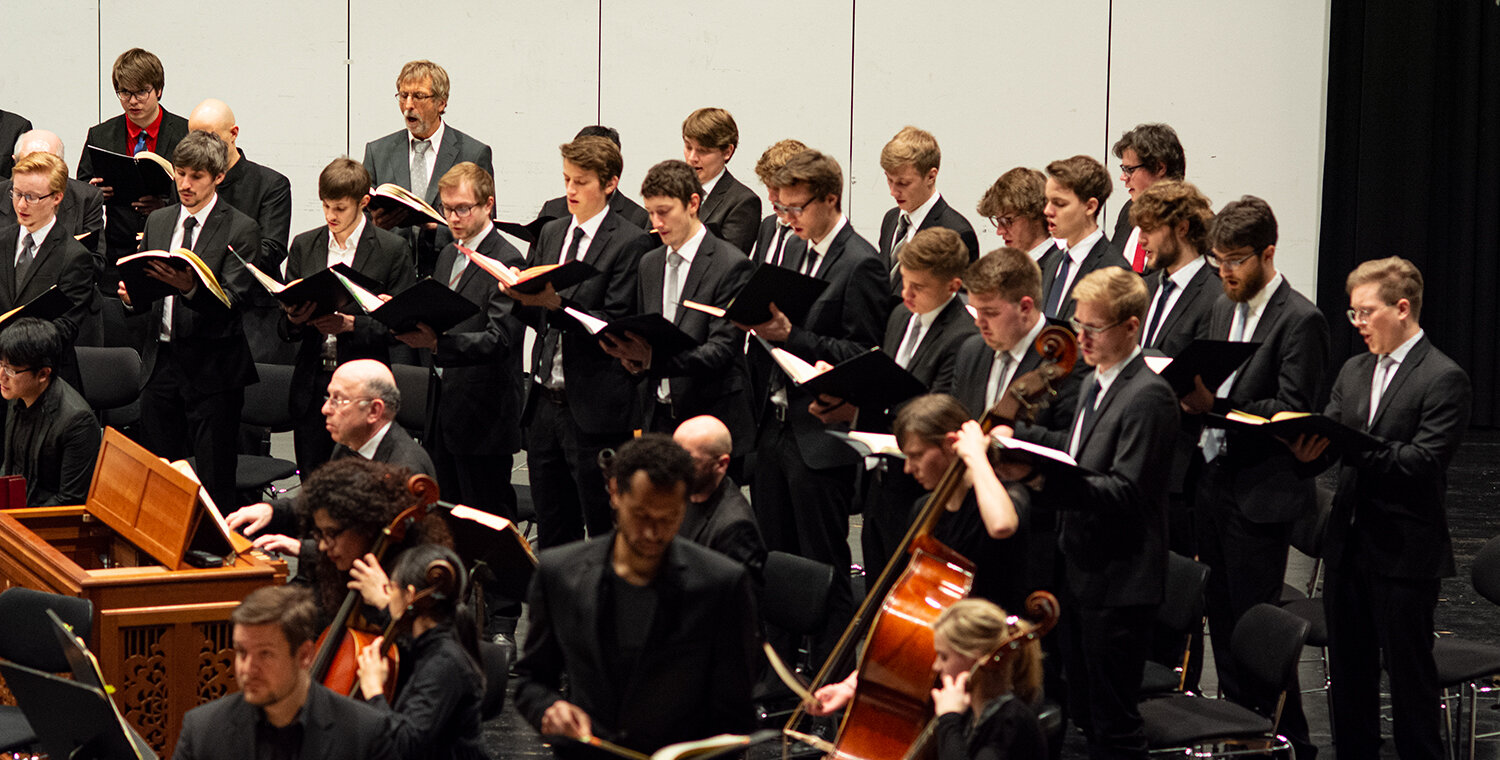
Conducting and Church Music
The master's program in "conducting" can be studied with various emphases: conducting in the direction of orchestra or wind ensemble directing, choir directing, or guitar ensemble directing. Wind ensemble directing is also offered as a secondary profile in the bachelor program.
Organ is also an essential part of different programs: Church Music A and B, artistic/artistic pedagogical bachelor, master, and Konzertexamen.

Dirigieren und Kirchenmusik
Der Masterstudiengang "Dirigieren" kann in Trossingen mit verschiedenen Schwerpunkten studiert werden: Dirigieren Richtung Orchesterleitung oder Blasorchesterleitung, Chordirigieren sowie Ensembleleitung für Gitarristen. Blasorchesterleitung wird zudem als Zweitfach im Bachelor angeboten.
Auch Orgel ist Bestandteil verschiedener Studiengänge: Kirchenmusik A und B sowie künstlerisch oder künstlerisch-pädagogisch mit den Abschlüssen Bachelor und Master sowie Konzertexamen.